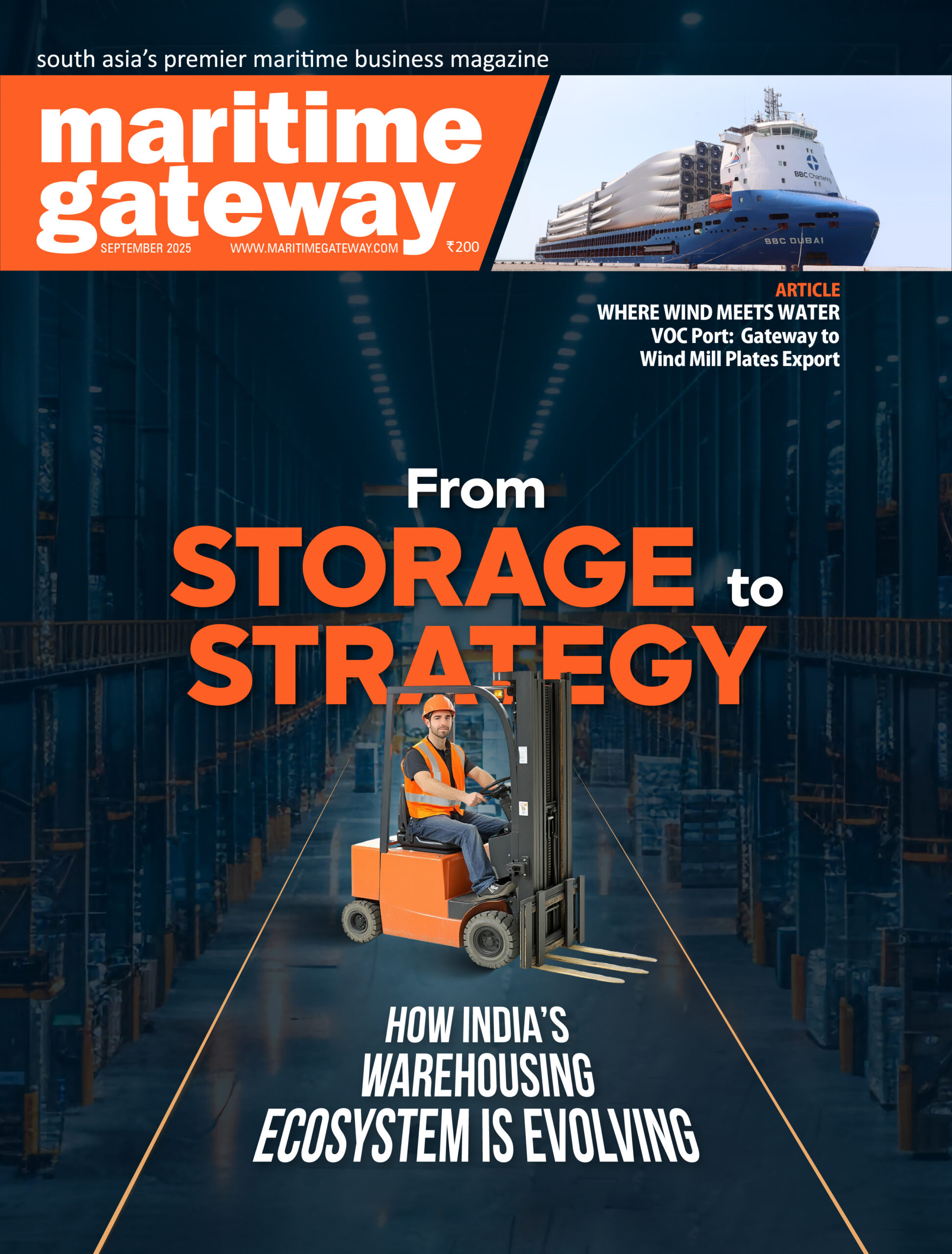How is Allcargo leveraging AI, IoT, and cloud migration to make operations more efficient?
Allcargo is harnessing the power of AI, IoT, and cloud technologies to enable smarter, faster, and more responsive logistics operations. Leveraging AI-driven models, the group delivers dynamic pricing and spot rate offerings that respond in real time to demand fluctuations and capacity utilisation–ultimately driving cost optimisation. These models are continuously refined using a diverse range of data sources including real-time shipment tracking, customer booking trends, warehouse usage analytics, and predictive pricing algorithms. IoT platforms have long been a core part of Allcargo’s technology foundation.
Connected fleet and devices are deeply embedded in the group’s DNA, enabling real-time visibility, intelligent route management, and predictive maintenance and AI driven real time command and control centre. On the cloud front, Allcargo has successfully migrated to six global data centres as part of ECU Worldwide’s strategic digital transformation initiative. This transition not only ensures scalability, flexibility, and geographic redundancy, but also enhances operational resilience and security. Cloud infrastructure is now the backbone supporting Allcargo’s next generation of digital logistics capabilities.
What were some key challenges in adopting these technologies?
Adopting AI, IoT, and cloud technologies at Allcargo Group required a holistic transformation, both technological and cultural. While the organisation had a wealth of operational data, it was spread across systems and formats. To harness its full potential, Allcargo consolidated data sources, established strong governance practices, and built a robust cloud foundation to enable real-time analytics and scalable AI deployment. With operations spanning over 180 countries, adopting cloud technologies was also critical to ensuring compliance, data residency, and consistent performance across regions.
This also included integrating IoT sensors across shipments, vehicles, and warehouses. These challenges were addressed by a stable infrastructure to enable standardisation and seamless data flow. Equally important was the mindset shift across teams.
By enabling continuous learning, building Centres of Excellence, and fostering digital ownership, Allcargo empowered its global teams to embrace next-gen technologies–transforming its digital infrastructure into a unified, intelligent, and future-ready logistics ecosystem.
How is Allcargo integrating sustainability into its operations using digital tools?
Sustainability is a key principle at Allcargo Group. We have digitized documents and gate passes, which have significantly reduced paper usage. At ECU Worldwide, Allcargo’s wholly owned global subsidiary that handles the LCL consolidation business, we now provide customers with visibility into the carbon footprint of each shipping line. This enables them to choose cleaner vessels even if it means paying a little extra and counting it as part of their CSR efforts. Additionally, we’ve implemented solar power, sensor based lighting, and other ecofriendly upgrades across our hubs and real estate infrastructure.
At Allcargo Group, sustainability and digital transformation go hand in hand. We’ve digitised documents, gate passes, and key operational workflows–significantly reducing paper usage across the board. At ECU Worldwide, our global LCL consolidation business, we’ve built tools that provide customers with real-time visibility into the carbon footprint of various shipping lines. This empowers them to make greener choices, aligning logistics decisions with their CSR goals. As we continue to scale digitally, sustainability is not just a parallel effort–it’s a built-in outcome of smarter, more efficient, and transparent operations.
While AI and cloud technologies are widely seen as tools for operational efficiency, Allcargo has uniquely leveraged them to directly influence revenue and profitability. Could you elaborate on how AI-enabled pricing and demand forecasting are helping the company manage capacity, improve margins, and stay competitive?
As a global leader in LCL consolidation, managing container capacity efficiently across trade lanes has always been a critical priority for us. Leveraging AI, we now use historical data and Realtime inputs to forecast demand more accurately accounting for seasonal shifts and global disruptions. This enables smarter capacity commitments and improves container utilisation.
Use of Agentic AI enables us to respond to RFQs instantly, regardless of the source or format of the data. There is no dependency on structured information. Even emails written in various languages can now be replied with accurate quote details using our Agentic AI platform.
In parallel, we’re developing next-gen tools powered by Generative AI that provide a unified, real-time view of global operations.
This visibility drives faster data informed decisions, strengthens our pricing strategy, and ultimately makes our logistics operations more competitive and profitable.
How is Allcargo leveraging its global digital platform, ECU360, to drive differentiation in a fragmented supply chain? Are there any other important points you would like to highlight?
Our global tech platform ECU360 serves as a cornerstone in transforming fragmented logistics into an intelligent, integrated ecosystem. Purpose-built for ECU Worldwide’s global LCL consolidation, ECU360 enables seamless quoting, booking, and tracking across 180+ countries.
All through a single, cloud-native interface. The platform combines AI, machine learning, and API integrations to offer real-time visibility, pricing agility, and process automation. Additionally, with cloud migration from the data center, the company aims to have 80 per cent of operational workloads moving to the cloud by 2025. As Generative AI capabilities are layered into the system, ECU360 is not just improving operational efficiency; it’s enhancing customer experience, empowering forwarders, and positioning ECU Worldwide as a digitally enabled LCL consolidation leader.









